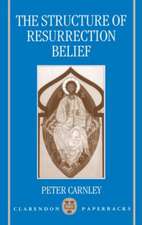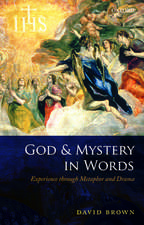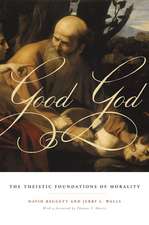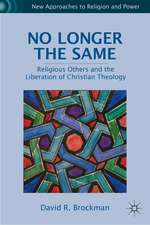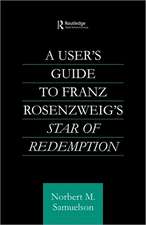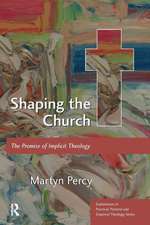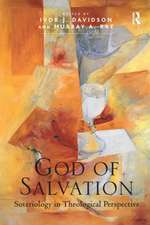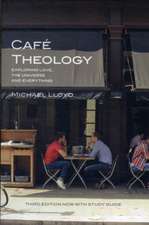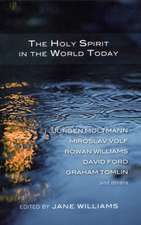Confessions: The Philosophy of Transparency: The WISH List
Autor Prof. Thomas Dochertyen Limba Engleză Hardback – 23 mai 2012
| Toate formatele și edițiile | Preț | Express |
|---|---|---|
| Paperback (1) | 256.59 lei 6-8 săpt. | |
| Bloomsbury Publishing – 15 ian 2014 | 256.59 lei 6-8 săpt. | |
| Hardback (1) | 596.81 lei 6-8 săpt. | |
| Bloomsbury Publishing – 23 mai 2012 | 596.81 lei 6-8 săpt. |
Preț: 596.81 lei
Preț vechi: 763.41 lei
-22% Nou
Puncte Express: 895
Preț estimativ în valută:
114.21€ • 117.99$ • 95.05£
114.21€ • 117.99$ • 95.05£
Carte tipărită la comandă
Livrare economică 25 martie-08 aprilie
Preluare comenzi: 021 569.72.76
Specificații
ISBN-13: 9781849666596
ISBN-10: 1849666598
Pagini: 224
Dimensiuni: 156 x 234 x 23 mm
Greutate: 0.43 kg
Ediția:New.
Editura: Bloomsbury Publishing
Colecția Bloomsbury Academic
Seria The WISH List
Locul publicării:London, United Kingdom
ISBN-10: 1849666598
Pagini: 224
Dimensiuni: 156 x 234 x 23 mm
Greutate: 0.43 kg
Ediția:New.
Editura: Bloomsbury Publishing
Colecția Bloomsbury Academic
Seria The WISH List
Locul publicării:London, United Kingdom
Caracteristici
It is unusual for a book examining a major trope of contemporary society to be so well grounded in historical, philsophical and literary background
Notă biografică
Thomas Docherty is Professor of English at Warwick University. He has published on most areas of English and comparative literature from the renaissance to the present day. He specializes in the philosophy of literary criticism, in critical theory, and in cultural history in relation primarily to European philosophy and literatures. Some of his previous publications include John Donne Undone (Methuen/Routledge, 1986), Postmodernism (Harvester/Columbia UP, 1993), Aesthetic Democracy (Stanford UP, 2006) and The English Question (Sussex Academic, 2008).
Cuprins
Part One: Now'This Thing of Darkness I Acknowledge Mine'Official Identity and Clandestine ExperiencePart Two: Dilatory TimeThe Ecology of AnguishDown to ZeroPart Three: The Political Condition of Confession | My Language
Recenzii
Thomas Docherty has long been not only one of our most significant, provocative and original cultural critics, but one of the most consistent. In this, his latest foray into his chosen intellectual terrain, he deploys some of his key concepts ? the event, radical historicity, becoming as heterogeneous flux ? as a basis for a sustained interrogation of the history and supposed virtue of the idea of confession. The result is a learned, sophisticated and powerful counterblast to a culture whose demand for immediate transparency is inseparable from a range of disabling fetishes, from management and security to space and speed, `truth and reconciliation' and, above all, identity and identity-politics. Everyone should read it.
We live in an age where 'transparency' is everything, or its illusion at least, from the mea maxima culpa of the disgraced politician, to the pseudodoxia of institutional accountability. Tele-technologies, kiss-n-tell biographies and massmediatic intrusiveness have rendered confession meaningless to such a great degree, that to read so finely attuned a 'confessional' as Thomas Docherty's stunning critical and philosophical inquiry is to be reminded of an ethical imperative that is as inescapable as it is misunderstood in so wilfully stupid a secular culture as the one we presently inhabit. In a study that begins with disarmingly straightforward questions concerning what it might mean 'to confess', and what the role of the subject is in this practise, Docherty opens out his exquisitely crafted meditation, with a breadth of scope that belies the filigree-work of its arguments, its explorations, and its always-political interrogations.
I have to confess to liking this book a lot. It is a literary, theoretical and autobiographical tour de force. Docherty's acute critical sense ranges across the philosophical and cultural landscape to read Paul de Man, Giorgio Agamben, Hannah Arendt and the Lisbon Lions. A few more books like this and the humanities might be worth fighting for after all.
We live in an age where 'transparency' is everything, or its illusion at least, from the mea maxima culpa of the disgraced politician, to the pseudodoxia of institutional accountability. Tele-technologies, kiss-n-tell biographies and massmediatic intrusiveness have rendered confession meaningless to such a great degree, that to read so finely attuned a 'confessional' as Thomas Docherty's stunning critical and philosophical inquiry is to be reminded of an ethical imperative that is as inescapable as it is misunderstood in so wilfully stupid a secular culture as the one we presently inhabit. In a study that begins with disarmingly straightforward questions concerning what it might mean 'to confess', and what the role of the subject is in this practise, Docherty opens out his exquisitely crafted meditation, with a breadth of scope that belies the filigree-work of its arguments, its explorations, and its always-political interrogations.
I have to confess to liking this book a lot. It is a literary, theoretical and autobiographical tour de force. Docherty's acute critical sense ranges across the philosophical and cultural landscape to read Paul de Man, Giorgio Agamben, Hannah Arendt and the Lisbon Lions. A few more books like this and the humanities might be worth fighting for after all.
Descriere
This book explores what is at stake in the confessional culture. Thomas Docherty examines confessional writings from Augustine to Derrida, arguing that through all this work runs a philosophical substratum - the conditions under which it is possible to assert a confessional mode - that needs exploration and explication.












